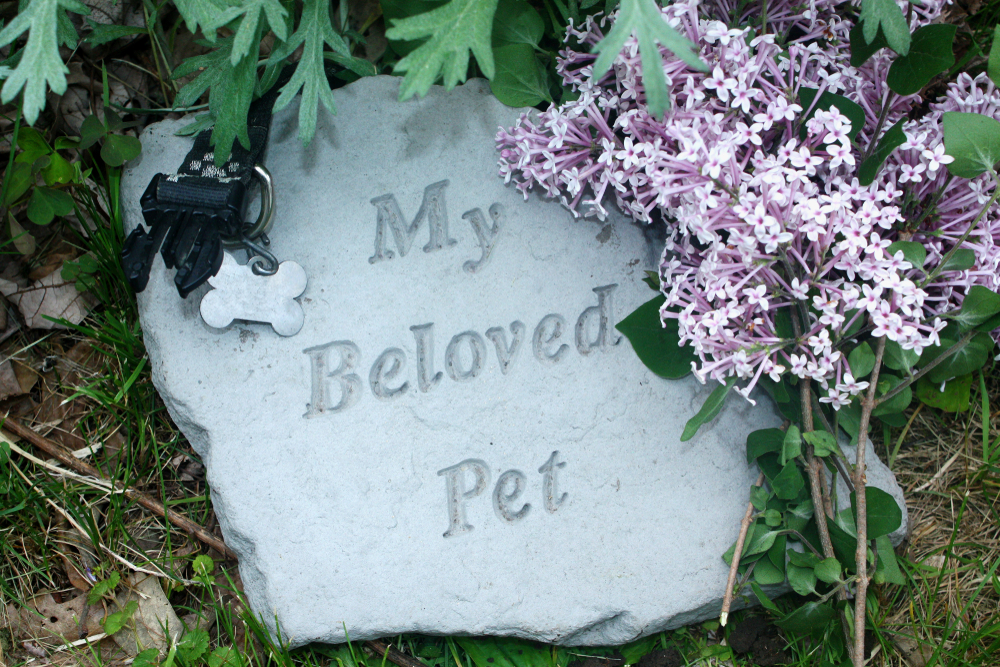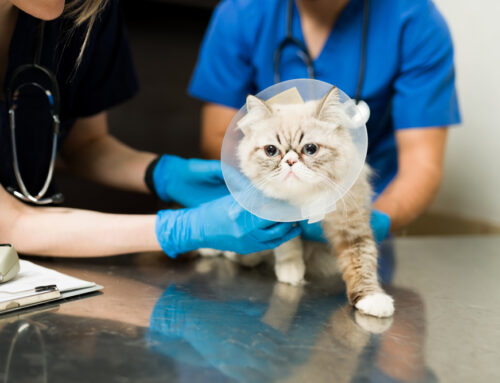When we lose a pet, we often feel a void that we believe can never be filled. While that may be true, there are ways to cope with the grief and sorrow that come with losing a beloved dog, cat, or other four-legged family member. While we know your pet is irreplaceable, find comfort in knowing that you are not alone, and resources are available during this difficult time. Consider the following four tips to guide you through the mourning period.
#1: Allow yourself to feel
Remember, everyone’s grieving process is unique. There is no right or wrong way to deal with the indescribable difficulty of losing your pet. Many pet owners will experience a range of emotions during this process, which is normal. You may find yourself feeling:
- Mad — At the disease or trauma that caused your pet’s death
- Angry — At yourself, your pet’s caregiver, or your veterinarian
- Guilty — That you could have done more for your pet in their final days
- Sad — That you couldn’t say a proper goodbye
Eventually, grief and sorrow will follow, as you find a “new normal.” Allow yourself to be present in each emotion, and don’t carry any expectations. The grieving process may take weeks or months, so be patient with yourself, and your emotions. Keep in mind that children and seniors may have particular difficulty with this process, so guiding them is important. Our support group can help—see below.
#2: Find ways to channel your emotions
Allowing yourself to feel requires creating mental space and an outlet for those emotions. You may already know what helps you to navigate feelings of sorrow or grief, but here are some suggestions:
- Journaling — Sit down with a pen and paper, or blank notebook, and write. You can write about your current feelings, your pet’s last days, or perhaps what you hoped your pet felt as he passed on. There is no strategy with journaling—you simply write what feels right.
- Exercising — Many people turn to running, walking, biking, or other forms of exercise, to release stress and create feel-good endorphins. If your doctor approves, exercise can be wonderfully therapeutic for coping with grief.
- Meditation — Mindfulness can have powerful effects on our ability to deal with stress and grief. Consider a guided meditation specific for pet loss, like this one.
#3: Create a unique remembrance for your pet
For some, an ideal way to remember their late pet is creating a keepsake in their honor. Not only can the process of creating a remembrance be healing, but the end product is a lifelong reminder of your beloved pet. Here are some ideas:
- Shadow box — Make a shadow box with your pet’s unique items, such as their collar, identification tags, a favorite toy, and photos. Or, buy a photo album, and insert printed photos, as well as small keepsakes, such as your pet’s identification tags, a paw print, or a lock of fur.
- Jewelry or artwork — If jewelry, artwork, or other items are your style, many small businesses create unique and delightful pet keepsakes, such as custom necklaces, bracelets, and key rings using your pet’s name, and paw or nose print. You can have a piece of jewelry made from a lock of your pet’s fur, or from their ashes if they were cremated.
- Tree or flowers — Plant a tree or bed of perennial flowers in your garden. Place a stone engraved with your pet’s name or a comforting quote nearby.
- Writing — Write a story about your pet, either a fictional tale, or a recollection of a time in your pet’s life you want to remember.
- Sit in their spot — Take time to appreciate your pet’s favorite place. Put yourself in your pets’ paws, and head to the dog park for an afternoon, or hang out in the sunroom in your cat’s favorite napping spot and birdwatch.
- Volunteer — Volunteering your valuable time or funds to help a reputable animal shelter in your pet’s honor shows how deeply you care, and your donation will not only directly impact an animal’s life, but will also make a wonderful salute to your long lost pet.
#4: Join our support group

Stack Veterinary Hospital is proud to provide a unique pet loss support group for our clients who are going through this extremely difficult process. Run by our talented hospice and palliative care liaison, Sally Van Ostrand, our group also offers support for pet owners who are enduring arduous end-of-life pet care decisions. If your pet is reaching this life stage, consider a consultation with our palliative care team, to evaluate your pet’s condition, and discuss anticipatory pet loss coaching for the entire family.
We strongly urge affected pet parents to join us, share their experiences, and connect with others who are enduring similar hardships. When mourning a pet, knowing that you are not alone can help you find comfort and peace in the darkness. If you have recently lost a beloved companion, contact us for guidance and help.







Leave A Comment